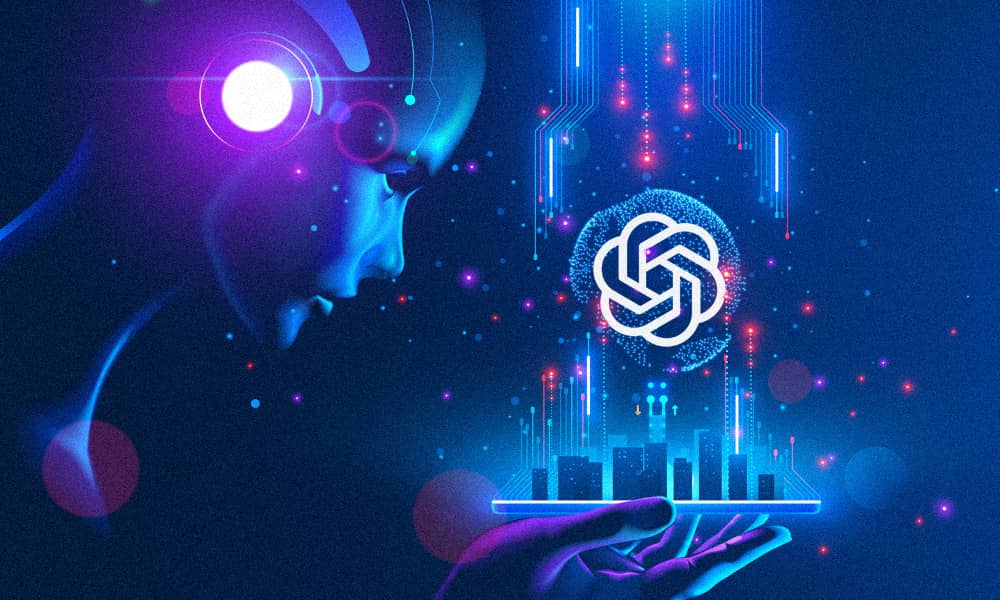
- OpenAI has discontinued its AI-detection software citing low accuracy
- ChatGPT’s performance has been on a decline in the recent past, raising concerns about AI reliability
- The company has stated its commitment to improving AI models and addressing limitations
Leading artificial intelligence (AI) organization OpenAI, has quietly discontinued its AI-detection software, citing its low accuracy rate. The AI classifier, which was launched on January 31, aimed to assist users, particularly teachers and professors, in distinguishing between human-written text and AI-generated text. However, OpenAI made an announcement on their blog post, stating that as of July 20, 2023, the AI classifier is no longer available due to its lack of accuracy.
The decision to shut down the AI classifier was simple, and the link to the tool is now inactive. OpenAI clarified that they are exploring alternative and more effective methods of identifying AI-generated content.
OpenAI acknowledged the need for better provenance techniques in the context of the text and committed themselves to developing and deploying mechanisms that enable users to identify if audio or visual content is AI-generated.
READ: OpenAI launches IOS ChatGPT official app, Android version to follow
From the start, OpenAI acknowledged the limitations of the detection tool. Furthermore, they warned users that it was prone to errors and could not be entirely reliable. One significant limitation was the tool’s high inaccuracy when verifying text with less than 1,000 characters. Additionally, it was overconfident in labelling text as AI-generated when it was, in fact, written by humans.
OpenAI has faced criticism not only for its AI detection tool but also for its flagship product, ChatGPT. On July 18, researchers from Stanford and UC Berkeley published a study indicating that ChatGPT’s performance had deteriorated significantly over time. Specifically, ChatGPT-4’s ability to accurately identify prime numbers had plummeted from 97.6% to a mere 2.4% in the past few months. Moreover, both ChatGPT-3.5 and ChatGPT-4 witnessed a substantial decline in their capability to generate new lines of code.
These developments have raised concerns about the reliability and longevity of AI models. AI technologies are continuously evolving, and it is essential to address their limitations and potential risks. OpenAI’s commitment to improving their AI models and addressing the issues is a positive step towards ensuring the responsible development and deployment of AI technology.
READ: OpenAI launches grant for developing Artificial Intelligence regulations
As the AI landscape progresses, researchers and developers must continue to monitor and refine their models to meet evolving challenges. The field of AI ethics is gaining importance, as it is crucial to consider the impact of AI technologies on various domains, including education, content generation, and beyond.
In conclusion, OpenAI has taken down its AI-detection software due to its low accuracy rate. The company is actively working on developing more effective methods for identifying AI-generated content and exploring better provenance techniques for text, audio, and visual content. Moreover, OpenAI’s flagship product, ChatGPT, has also faced scrutiny for its declining performance in identifying prime numbers and generating new lines of code. As the AI industry moves forward, addressing limitations and improving model performance will be vital to ensuring the responsible and beneficial use of AI technologies in diverse applications. Ethical considerations and ongoing research will continue to shape the future of AI and its role in society.
- SEO Powered Content & PR Distribution. Get Amplified Today.
- PlatoData.Network Vertical Generative Ai. Empower Yourself. Access Here.
- PlatoAiStream. Web3 Intelligence. Knowledge Amplified. Access Here.
- PlatoESG. Automotive / EVs, Carbon, CleanTech, Energy, Environment, Solar, Waste Management. Access Here.
- BlockOffsets. Modernizing Environmental Offset Ownership. Access Here.
- Source: https://web3africa.news/2023/07/26/news/openai-pulls-down-ai-detection-software-amidst-low-accuracy-rate/
- :has
- :is
- :not
- 000
- 1
- 20
- 2023
- 31
- 7
- 9
- a
- ability
- About
- accuracy
- accurately
- acknowledged
- actively
- Additionally
- address
- addressing
- AI
- aimed
- also
- alternative
- amidst
- an
- and
- android
- Announcement
- app
- applications
- ARE
- artificial
- artificial intelligence
- Artificial intelligence (AI)
- AS
- assist
- audio
- available
- BE
- been
- beneficial
- Berkeley
- Better
- between
- Beyond
- Blog
- both
- but
- by
- capability
- challenges
- characters
- ChatGPT
- clarified
- code
- commitment
- committed
- company
- Concerns
- conclusion
- Consider
- considerations
- content
- Content Generation
- context
- continue
- continuously
- could
- criticism
- crucial
- Dark
- decision
- Decline
- Declining
- deploying
- deployment
- Detection
- developers
- developing
- Development
- developments
- diverse
- domains
- down
- due
- Education
- Effective
- enable
- ensuring
- entirely
- Errors
- essential
- ethical
- ethics
- evolving
- Exploring
- faced
- fact
- few
- field
- flagship
- For
- Forward
- from
- Furthermore
- future
- gaining
- generate
- generating
- generation
- grant
- Group
- had
- Have
- High
- However
- HTTPS
- Humans
- identify
- identifying
- if
- Impact
- importance
- improving
- in
- inactive
- Including
- industry
- Intelligence
- iOS
- issues
- IT
- ITS
- January
- jpg
- July
- July 20
- labelling
- Lack
- landscape
- launched
- launches
- less
- LG
- limitation
- limitations
- lines
- LINK
- longer
- longevity
- Low
- made
- mechanisms
- Meet
- mere
- methods
- model
- models
- Monitor
- months
- more
- Moreover
- moves
- must
- Need
- New
- no
- now
- numbers
- of
- official
- on
- ONE
- ongoing
- only
- OpenAI
- or
- organization
- over
- particularly
- past
- performance
- plato
- Plato Data Intelligence
- PlatoData
- positive
- Post
- potential
- Prime
- Product
- provenance
- published
- Pulls
- quietly
- raised
- raising
- Rate
- recent
- refine
- relative
- reliability
- reliable
- research
- researchers
- responsible
- risks
- Role
- scrutiny
- Shape
- Shut down
- significant
- significantly
- Simple
- Society
- Software
- specifically
- stanford
- start
- stated
- stating
- Step
- Study
- substantial
- taken
- teachers
- techniques
- Technologies
- Technology
- than
- that
- The
- The Future
- their
- themselves
- they
- time
- to
- tool
- towards
- use
- users
- various
- verifying
- version
- vital
- was
- when
- which
- will
- with
- witnessed
- working
- written
- zephyrnet













